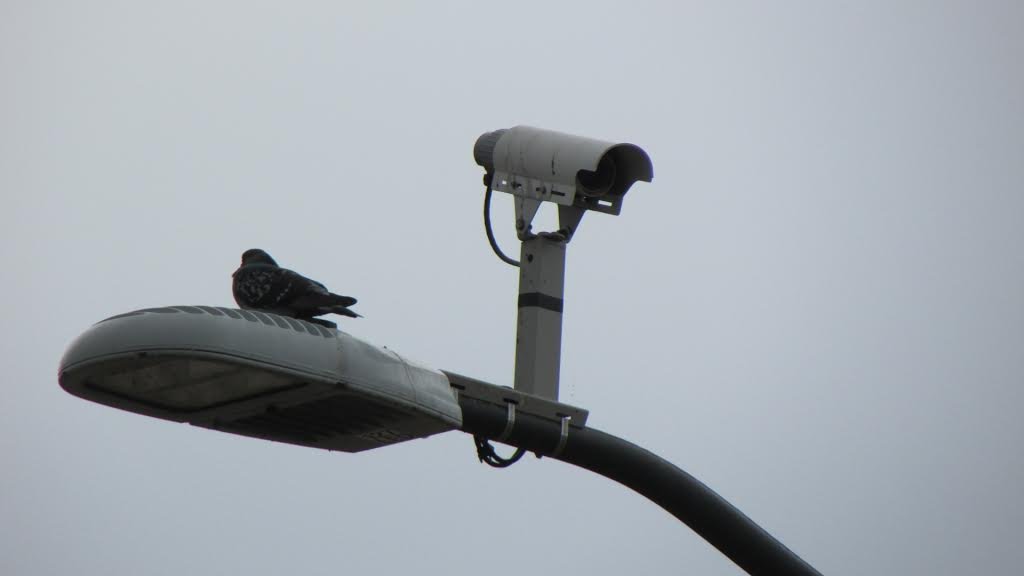Oakland police need major technology upgrades, while a city contract for billboard advertising is leaving $88 million on the table, a watchdog group of Alameda County residents wrote in a new series of reports detailing how local agencies could do better.
The latest Alameda County Civil Grand Jury reports, which were released this week, detailed missed opportunities in both the city’s policing and its contracts with private billboard companies that reportedly had “undue influence” over the city’s selection process, as well as a possible conflict-of-interest with a councilmember.
Here’s what this year’s reports found:
‘Missed opportunities’ with police technology
The civil grand jury grappled with what it called a realistic view of the Oakland Police Department — that there won’t be a dramatic increase in the number of cops on the streets any time soon, and so OPD needs to build a long-term strategy for boosting its crime-fighting technology.
Part of that means establishing better local control of 290 license-plate reader cameras installed around the city that currently are operated by the California Highway Patrol on the orders of Gov. Gavin Newsom, the grand jury argued.
Currently, OPD has no “specific procedures” for deciding when to respond to the reports flagged by the cameras and facilitated by CHP.
Then there are OPD gadgets found by the jury to be ineffective, such as magnetic GPS trackers that can’t be launched by cops at fleeing vehicles because of limited range or cellphone data-capture technology that’s either obsolete or disallowed by state privacy laws.
Upgrades to that tech, the report stated, could accompany OPD’s plans for a “real-time crime center” to centralize these technologies in a single regional hub.
“The grand jury believes that if technology is better implemented and utilized in reducing crime in the city of Oakland it becomes a more effective force multiplier,” the report states.
Cannabis billboards touting the legal use of marijuana for all in 2018 are seen off Broadway and Grand Ave. in Oakland, Calif., on Thursday, Dec. 28, 2017. (Laura A. Oda/Bay Area News Group)
Billboard deal leaves money on table
Another report found that the city’s contracts with two billboard-advertising companies will generate $88 million less revenue over the next three decades than another offer that came before the City Council last summer.
The council signed a contract with Becker Boards and Outfront Foster Interstate despite findings by city staff that a separate proposal by Clear Channel Communications — another dominant player in California’s billboard market — was superior, the jury noted.
Becker had previously courted the Oakland-based Native American Health Center for support, along with other nonprofits and private-property owners who would “potentially benefit from its proposal,” per the report.
But there was a possible conflict of interest, the jury found: the health center had “previously employed the spouse of a city councilmember as a paid consultant, while the councilmember’s adult child was also actively involved with the organization.”
The report doesn’t identify the councilmember in question, but the Native American Health Center’s website indicates that Councilmember Noel Gallo’s son, Noah, is a board member. The jury’s report said the councilmember was a “strong advocate” for the Becker/Outfront deal.
At the time, the councilmember’s wife was also on the board of the Oakland Latino Chamber of Commerce, which received free billboard advertising under the Becker/Outfront deal, the report found.
By the end, the city signed Becker and Outfront to a joint 31-year deal — with a 10-year extension option — worth $68 million, while Clear Channel’s rejected proposal would have generated $156 million over a 30-year initial term.
The council approved the contract on its consent calendar, with no discussion in front of the public. It also “allowed lobbyists for billboard companies to have undue influence” by “providing content and language that was inserted verbatim into official council documents.”
With a historic shortfall hanging over the council at the time, the report argues that Oakland needed to capitalize on as lucrative a deal as it could get, but instead relied on a non-competitive process. It recommends changes to the city’s practices.


